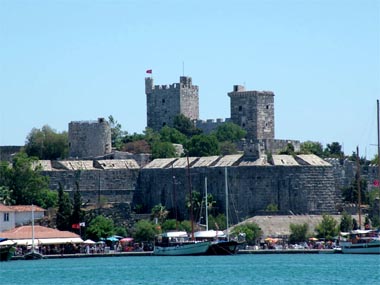In the new book, Return to Order, the author John Horvat, coins some new terms such as “frenetic intemperance,” and uses other terms with which the average reader is more familiar, to describe the root cause of our economic crisis, as well as the remedy that we must use to solve our problems.
To get a copy of this fascinating book at the 30% presale discount, please:
ORDER WITH 30% Presale Discount
To join the debate about how America can return to order, please:
***
To help the reader better understand the book, here are some simple definitions of these terms.
***
Organic society: A social order oriented towards the common good that naturally and spontaneously develops, allowing man to pursue the perfection of his essentially social nature. An Organic society gives us a few rules from which come thousands of systems.
In contrast, Socialism gives us one system from which comes a thousand rules and regulations.
(Traditional Christmas market in Stuttgart, Germany, where an abundance of varied and local products are sold.)
To use an imperfect analogy, we can compare an Organic Society to a living being with its interrelated cells, tissues, organs and systems that all work together for the common good.
Likewise in society, this dependency aids us in our quest for self-sufficiency by providing comfort, aid and guidance. It makes allowances for individual strengths and weaknesses that can be counterbalanced and complemented in others creating the sensation of wholeness, security and well being for the entire community or social group. It has family bonds that serve as example of how this dependency enriches society yet protects individuality.
***
Order: the state of things where everything functions according to its end. When everything is doing what it is supposed to be doing, there is order. When, for example, all the organs in a human body are functioning properly, there is order. All it takes is one malfunctioning major organ, and there is disorder in the whole body.
***
Frenetic intemperance: an explosive expansion of human desires beyond traditional and moral bounds. Its frenetic nature leads those of this undercurrent to resent the very idea of restraint, and scorn the spiritual, religious, moral and cultural values that normally serve to order and temper economic activity.
Financial writer Edward Chancellor aptly observes an “anarchic, irreverent, and antihierarchic” spirit whose essence is not simply about greed but “a Utopian yearning for freedom and equality which counterbalances the drab rationalistic materialism of the modern economic system.”
Frenetic intemperance is then more destructive than the common intemperance that leads to the simple greed or ambition that have always plagued man throughout history.
***
The four cardinal virtues: temperance, prudence, justice, fortitude.
Prudence is the virtue whereby man applies right reason to actions. In its natural form, it introduces into economy those norms of experience, common sense and balance that make economy human, flexible and practical. For this reason, prudence is also called practical wisdom.
Temperance is the virtue whereby man governs and moderates his natural appetites and passions in accordance with the norms prescribed by reason and Faith. The practice of temperance acts as a braking mechanism to keep in balance the captains of industry and buffer the power of intrusive government.
Justice is the virtue that leads us to render to each one his own. In economic matters, commutative justice is the particular kind of justice that assures one party renders to another in transactions what is due in strict equality as, for example, when the price one pays for an apple corresponds to its worth.
Fortitude is the virtue that enables a person to face danger and to endure hardship. Fortitude, in economic and social matters, makes a person resolute to reject and denounce immoral and dishonest practices that in the long run undermine the trust that is so essential to the entire social fabric, not only to successful business.

The four cardinal virtues compliment, support and strengthen one another, much like towers in a fortress serve to reinforce the defense and strength of the whole castle.
To get a copy of this fascinating book at the 30% presale discount, please:
ORDER WITH 30% Presale Discount
To join the debate about how America can return to order, please:




No comments:
Post a Comment